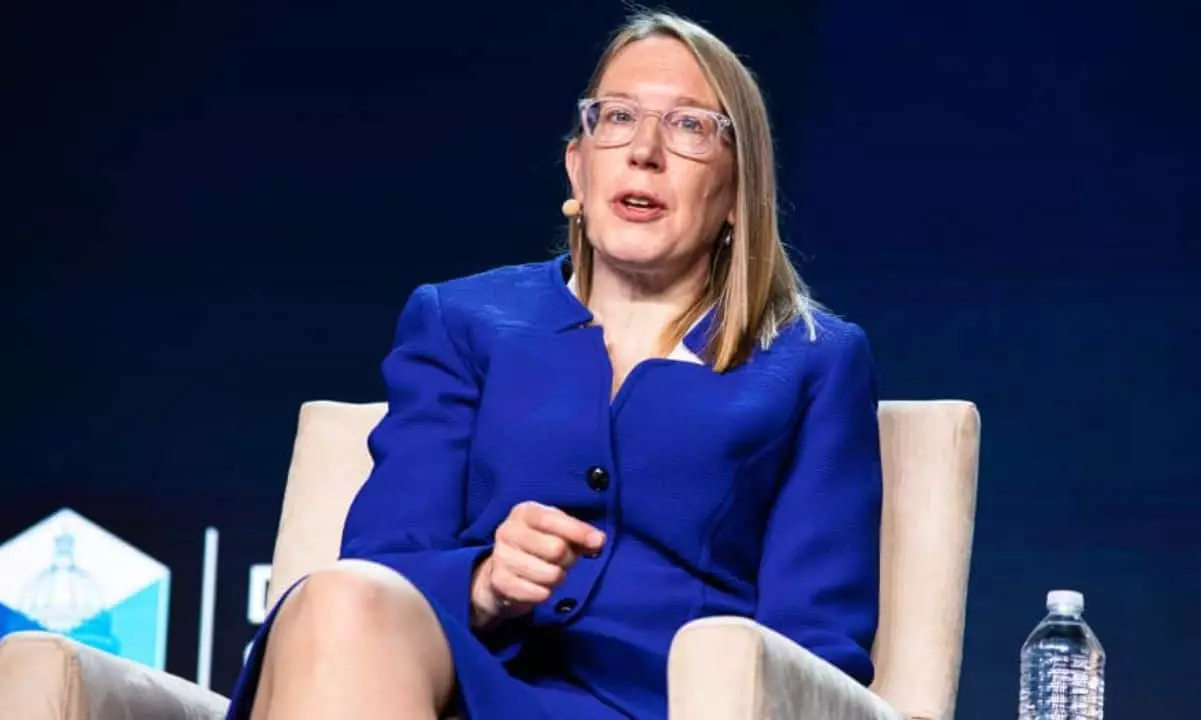Hester Peirce, a prominent Commissioner at the U.S. Securities and Exchange Commission (SEC), is at the forefront of discussions regarding cryptocurrency regulation during a politically charged time in the United States. With the impending presidency of Donald Trump, Peirce is determined to reshape the SEC’s approach to digital assets. In a recent interview with Fox Business, she articulated a three-pronged strategy aimed at dismantling the barriers that impede the crypto industry’s expansion and fostering a more coherent regulatory environment.
Central to Peirce’s vision is a critical examination of what she terms “Operation Chokepoint 2.0.” This initiative has sparked significant debate, with many critics asserting it represents a government-mandated bias against the crypto sector, restricting its ability to access essential banking services. Peirce’s insistence on halting these restrictive policies reflects a broader call for increased access and support for the crypto industry. She argues passionately for the necessity of services like custody, which are vital for crypto’s operational viability. According to her vision, enabling these services will not only bolster individual businesses but also set the stage for the entire sector to innovate and thrive without undue government constraints.
An equally important aspect of Peirce’s strategy is the need for clearer definitions surrounding which digital assets fall under SEC jurisdiction. There exists a palpable anxiety within the industry regarding the ambiguity of regulatory frameworks, where firms are often unsure whether a new digital asset would be classified as a security, thus existing under the SEC’s rigorous compliance regime. Peirce strongly advocates for a transparent and collaborative dialogue between regulators and crypto entities to delineate these boundaries precisely. By openly engaging all stakeholders, she believes that both industry participants and regulators can expedite the regulatory process, ensuring that firms are legally compliant without stifling innovation.
Peirce’s call for open dialogue is particularly relevant in the current climate where mistrust often characterizes the relationship between crypto companies and regulators. The need for collaboration emerged after Coinbase published documents alleging that federal agencies were using informal guidance to choke off the crypto industry’s access to traditional banking. These allegations underscore the necessity for a shift towards a more constructive dialogue that replaces suspicion with transparency. During her interview, Peirce expressed optimism about the potential for productive discussions to quickly yield meaningful progress, an assertion that could prove invaluable as the industry seeks clarity and support.
The political ramifications of Peirce’s proposals cannot be overstated. U.S. Representative French Hill has voiced his commitment to investigating the alleged anti-crypto measures associated with Operation Chokepoint 2.0. His “Make Community Banking Great Again” initiative emphasizes the need for fairness in how financial institutions treat customers, particularly those in emerging sectors like cryptocurrency. Hill’s critique of politicized debanking perfectly encapsulates the concerns raised by industry leaders about the potential misuse of regulatory power against burgeoning businesses. Figures such as Charles Hoskinson, founder of Cardano, have raised alarms about the global repercussions of such restrictive measures, suggesting that the campaign to limit crypto business could stifle innovation beyond U.S. borders.
Hester Peirce’s vision for a more accessible and clearer regulatory framework for the cryptocurrency sector reflects a genuine desire to foster innovation while maintaining necessary oversight. By advocating for expanded access to financial services, clarifying SEC jurisdiction, and promoting open communication between regulators and crypto firms, she is laying the groundwork for a more supportive environment for digital assets. As the political landscape changes under new leadership, the focus on these crucial regulatory measures will be essential to harnessing the full potential of the cryptocurrency industry, allowing it to emerge as a transformative force in the financial ecosystem. The path forward will require not just regulatory clarity but a commitment to collaboration between government and private sector stakeholders, ensuring that the future of cryptocurrency is characterized by both innovation and integrity.








